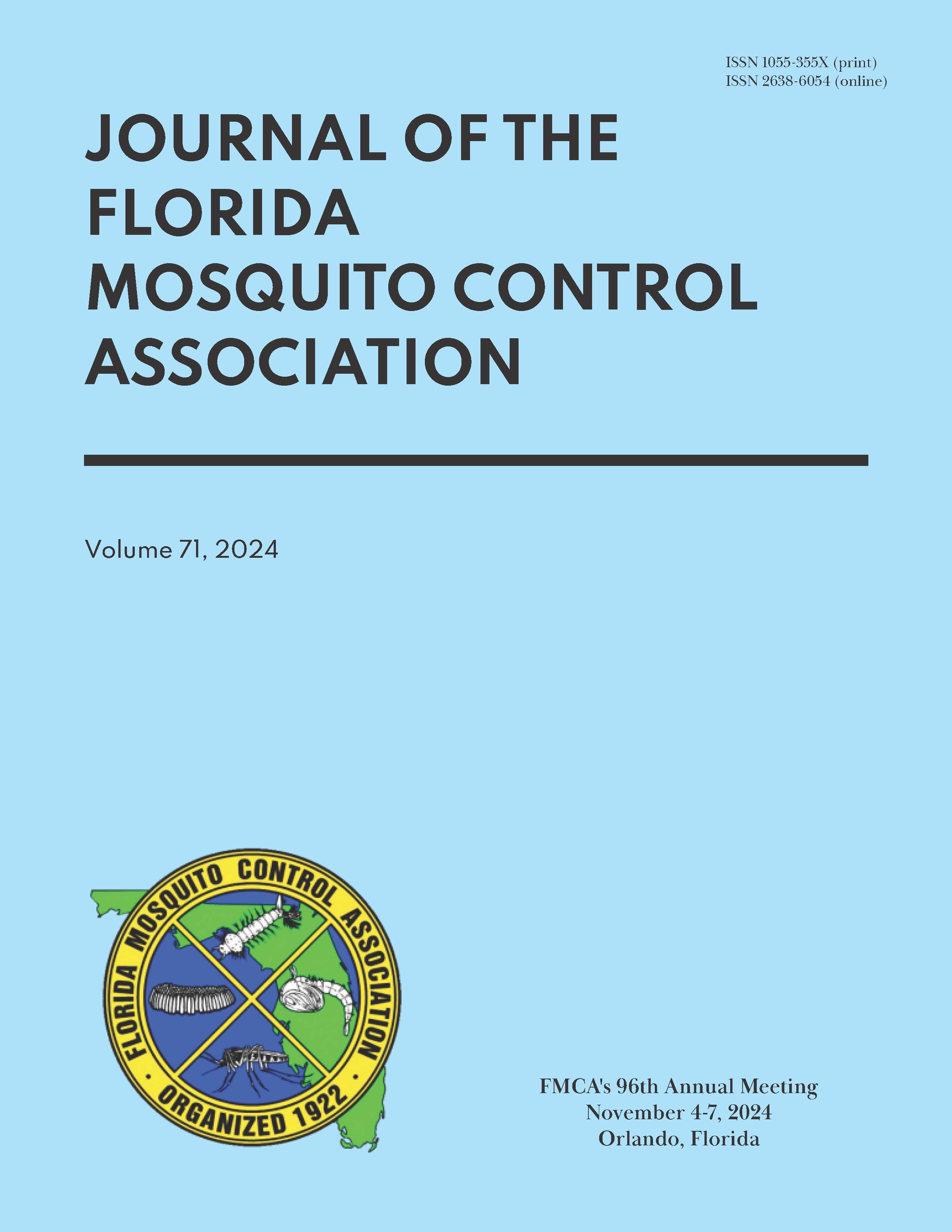INSECTICIDE TOXICITY TO HONEY BEES: LESSONS LEARNED FROM STUDIES BY THE UNIVERSITY OF FLORIDA URBAN ENTOMOLOGY LABORATORY
DOI:
https://doi.org/10.32473/jfmca.71.1.135290Keywords:
insecticide, toxicity, honey bee, non-target, Aedes aegypti, Aedes albopictusAbstract
Laboratory and field studies comparing the relative tolerance of mosquitoes (Aedes aegypti and Aedes albopictus) and non-target species, including the honey bee (Apis mellifera), and other non-target insects have shown that the non-target species can tolerate fairly well when exposed to insecticides used in mosquito control operations. Tolerance levels of non-target species vary due to factors such as the development of insecticide resistance in mosquitoes which require higher insecticide doses to reduce populations to adequate levels. However, well-planned mosquito control programs, can lower risks to honey bees and other non-target species. This review discusses the toxicity of mosquito control insecticides to the honey bee and other non-target insects.
Downloads
Published
Issue
Section
License
Copyright (c) 2024 Rebecca Baldwin, Roberto M. Pereira, Phillip G. Koehler, Rui-De Xue

This work is licensed under a Creative Commons Attribution-NonCommercial 4.0 International License.

